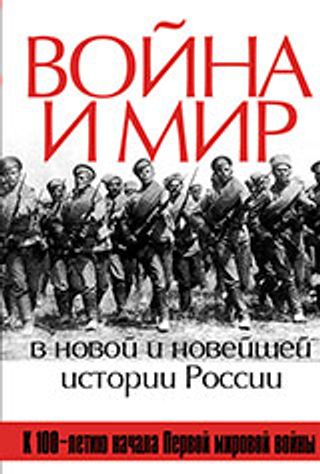?
Война и мир в новой и новейшей истории России (к 100-летию начала Первой мировой войны): Сборник статей
Collection of articles is based on materials RUSO Conference October 26, 2013 and primarily focuses on different aspects of origin , course and consequences of the First World War. We investigate the approaching of the war , its relation in Russian and foreign historiography , problems of international relations of the era , the situation in the army and navy. The second major unit materials collection associated with the history of the Great Patriotic War. Considered moral questions of the political climate in the Soviet Union before and at the beginning of this war, the economy , the activities of individual units. Again referred to the exploits of heroes Panfilov . The collection also has special film Prutian campaign in 1711 , Russia's participation in the anti-Napoleonic wars , as well as a number of other problems of Russian history is closely connected with the history of some foreign countries .
The collection is intended primarily for historians - researchers, university professors, as well as for all those interested in domestic history of modern and contemporary .
